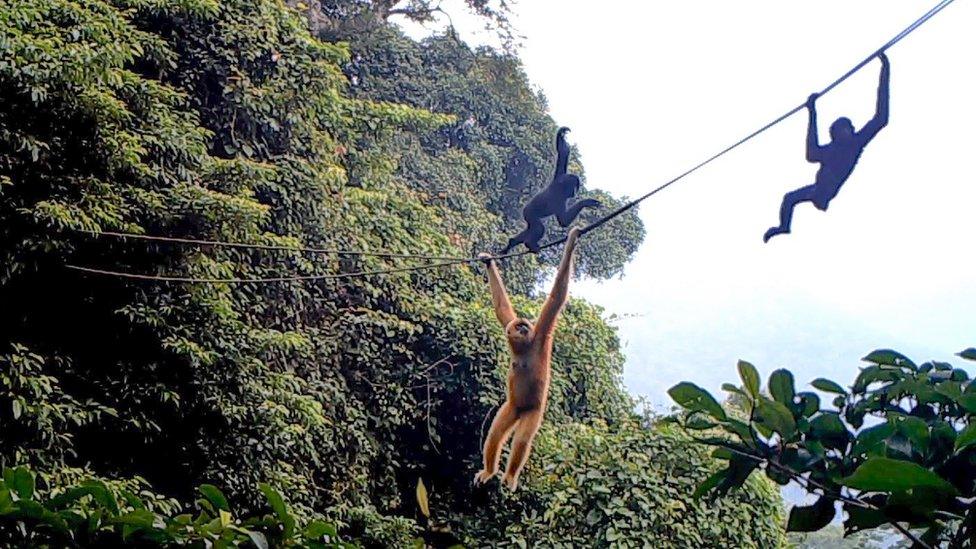Orangutans use 'slang' just like humans do!
- Published
- comments
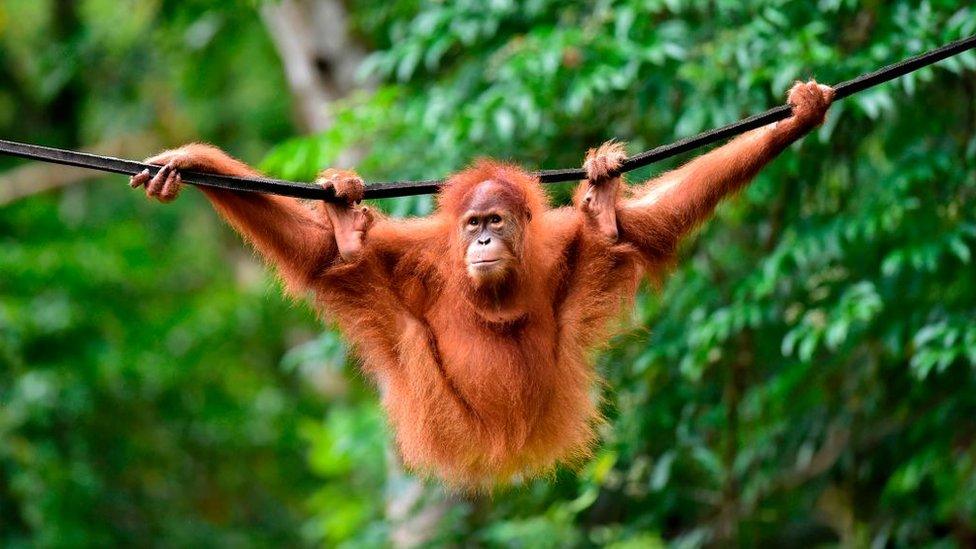
70 orangutans were studied as part of the research
Lots of people use slang when chatting with their friends, and new research suggests orangutans may do the same!
A team of scientists from the University of Warwick studied around 70 orangutans living in six different social groups on the Southeast Asian islands of Borneo and Sumatra between 2005 and 2010. The sounds the apes made with their voices were recorded by the researchers.
Some of the groups studied were bigger and more sociable, and others were smaller and more relaxed.
The team found that in the groups with many apes, individual apes used new sounds that were quickly picked up and then soon dropped, just like phrases people might use at school which become popular before later dying out when they're no longer considered cool to use.
However, within the smaller more laid back groups of apes, the orangutans were found to typically stick to more traditional calls and were less likely to invent their own unique sounds. If a new call was introduced in these groups, it was more likely to become a permanent part of their language.
Orangutans are the heaviest animal living in trees. Their days are often spent swinging through the canopies of tropical rainforests in Borneo and Sumatra looking for food. Female orangutans even give birth in nests built up in the trees!
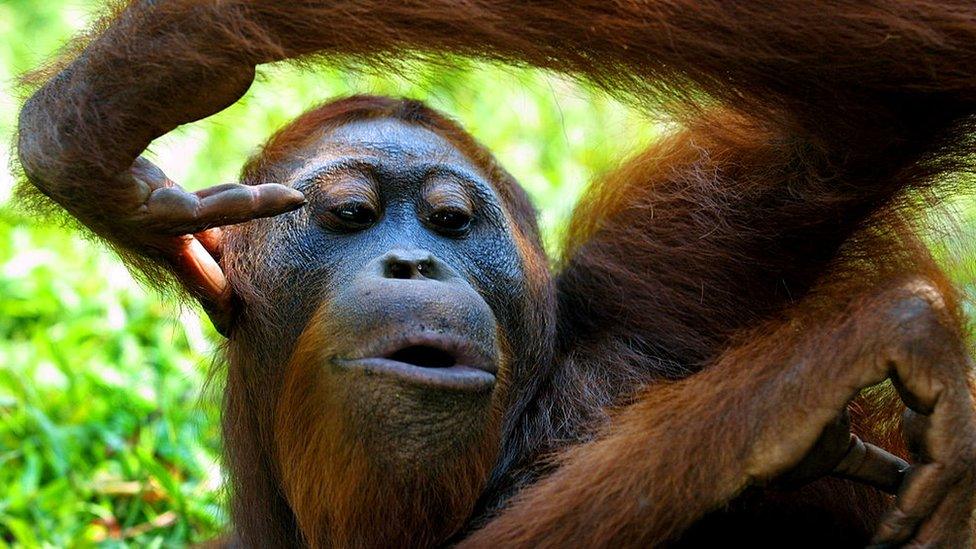
Different groups of orangutans use different 'slang' according to new research
"Orangutans living in low densities have indeed a rich 'slang', that is, a collection of calls that they recurrently use and gradually build upon," study author Dr Adriano Lameira, assistant professor of psychology at the University of Warwick, told The Telegraph.
"Whereas vocal communication by orangutans in high densities is like a cacophony. In these populations, it seems that novelty is at a premium."
The new research shows that the vocabulary of apes is not rigid like first thought, but is actually quite fluid and can change frequently.
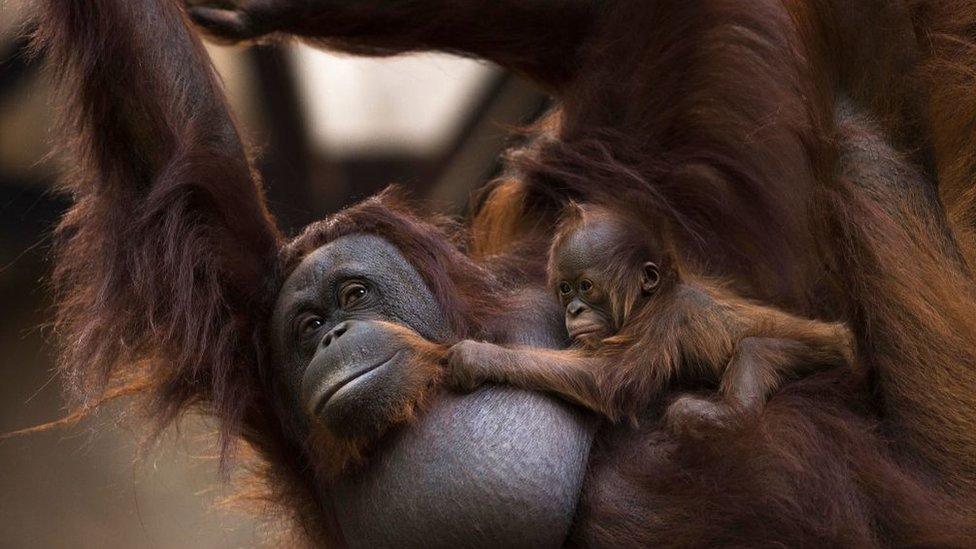
Much of an orangutan's life is spent up in the trees
"Our study shows that an individual's social community moulds how that individual communicates, as is the case with any human learning a language," Dr Lameira said.
"What was unknown was that these vocabularies differ or vary according to the type of social community an orangutan lives in.
"This disproves the long-standing idea that great apes have automatic, hard-wired, reflexive and immutable calls all their lives."
- Published16 August 2021
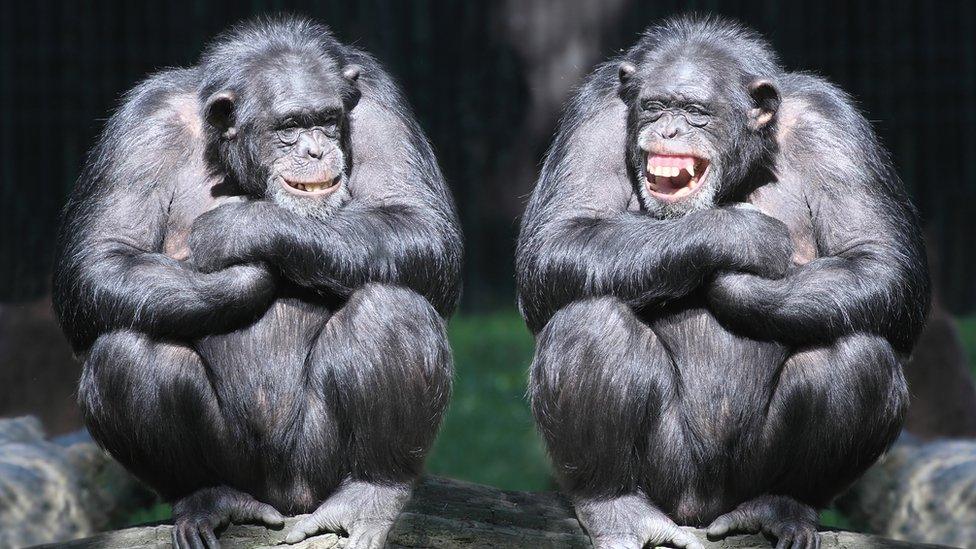
- Published14 January 2021
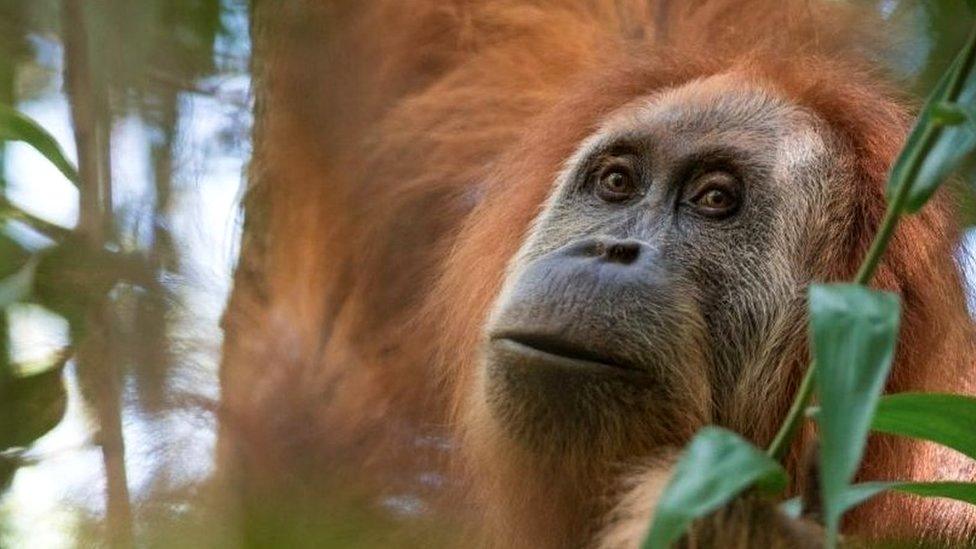
- Published17 October 2020
